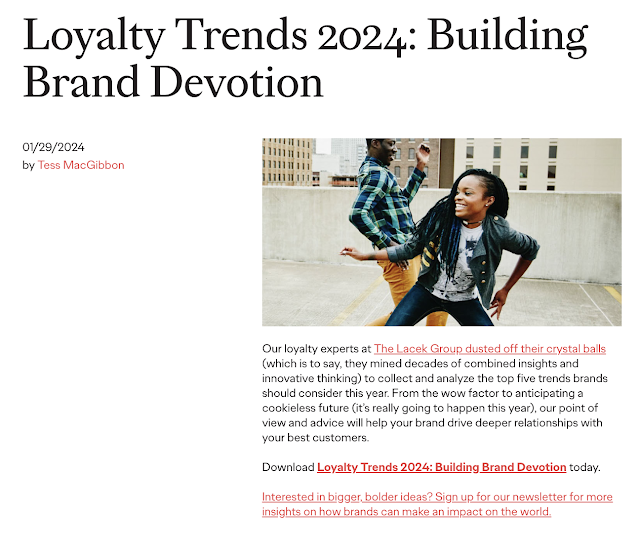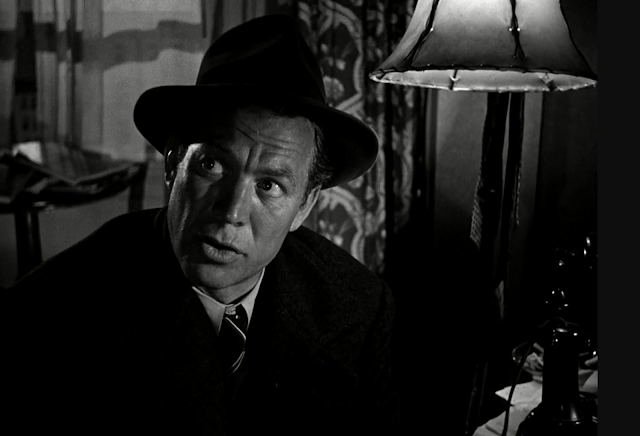Until 1992, or thereabouts, I had always worked on an IBM Selectric typewriter. It was a great machine. It had a reassuring hum. And a Gibraltar-like solidity which was a nice counter-balance to the mayhem and swirling stupidity of an advertising agency.
One morning a tech guy came into my windowed-office. He was the first tech guy I had ever encountered. Nothing ever went wrong with a Selectric. You didn't need to be networked--you could walk down the hall. And Selectric had its printer built-in. They called it a "ribbon."
He dropped an early Mac on my desk, plugged it in and turned it on. He said nothing about how to use it and left me on my own. There was no training, or anything like training. Not even a manual.
I was quickly baffled.
And, as a person who's always abided by deadlines, I worried that learning how to use this new machine would interfere with me getting my work done. I was interested in learning the Mac but I was nervous that I'd not be able to figure it out and along the way, I'd lose documents, and not be able to meet the considerable demands of my job.
So, I kept my IBM at its seat of honor on my desk. And I put my Mac on the credenza on the other side of my office chair. I could swivel from typewriter to Mac as easy as hula-hooping.
When I was writing on deadline, I'd use my IBM Selectric. Other times, I'd spend on the Mac trying to get the hang of it.
I quickly realized the way I wrote on my IBM was geared to working on a typewriter. We had pink, yellow, or blue scrap paper to write drafts on. It was thinner paper, and less-wasteful. It was scratch paper. A place where you could experiment and make mistakes.
I'd roll a piece of paper into the typewriter and work on my opening sentence. I'd quickly fill a page with opening sentence noodles, until I got it to where I wanted it. Then I'd start with my next sentence. Appending it to my opening.
Often, I'd tear a sentence I'd like from a piece of paper and glue or tape it to another piece. Writing a 200-word piece of copy involved a lot of rewriting and a lot of assembling. When I had the whole piece written, I'd type it over again, making changes as I typed. When I was happy with it, I'd take it to my assistant, Francine, who would "word process" it on her Wang, storing it on a floppy disc. That let you make further changes without typing the whole magilla over again.
It sounds archaic. But it worked. And we didn't know how Pleistocene we were, we just were.
The good news with working on a typewriter was you had your previous drafts. Something you wrote and hour ago wasn't lost or deleted. It might be at the bottom of your garbage but all your false starts and stops had a physicality to them.
For me, working on a Mac was harder, because I deleted things. That meant I couldn't quickly get them back. So at least in the beginning, I felt I was leaving good thoughts in the ether.
Before long, however, I figured out the Mac and how to work on it in a way that accommodated how I think and write. It's as second-nature to be now as breathing in and breathing out.
Another great shift in work for me came on January 14, 2020. That's the day Ogilvy waited until 4:30 in the afternoon, a full-day after they fired everyone else, to fire me. Apparently I harkened back to a time when the agency was highly-profitable (it was bought for almost one-billion dollars) and the work was good, not just annoying.
That was also the last day I worked in a proper office, with all the noise and distractions and cacophony that comes from an "open plan" workspace. I know what open plan means and how they got the term. It means it's open to every bit of chaos because their only plan is to stuff more people in fewer square feet. Because you're not a person, you're a human resource. You don't create work, you make content, or assets.
In a modern agency you're never more than a ping-pong-paddle's width away from an Excel spreadsheet.
When I started working directly for clients, and myself, my writing ways and means changed again. I still had deadlines but I had more freedom. If I was stuck on something, I wasn't prisoner of carpet-tiles and acoustic ceilings. I could jolt my head out of its space with a walk along the sea. I could play with my puppy at the beach. I could skip a flat stone and see if, torn rotator and all, I could get twenty richochets, the standard measure for stone-skipping immortality.
I found myself working differently. Writing more effectively because I was living more naturally. Breaking bouts of unproductivity by getting my head out of that headspace and into a different one. When you come back at a problem after some time away, you often see things you couldn't have seen before and what had seemed to be an intractable problem soon collapses to your refreshed brain-power.
Today, I'm still on deadline. I'll always be on deadline. But, after more than 44 years making my living at a keyboard, I have different ways of handling those deadlines.
Often I write what needs to be written, leave and come back to it after twenty minutes, an hour or three. I might do that six times over the course of 24 hours. Each time visiting my thinking with a nip or a tuck, a joke or a toke, a nudge or a smidge.
I usually give my blogposts twenty additional minutes the morning I post them. My brain is freshest then and I'm looser and less of a second-guesser.
I forget who the screenwriter was, but I learned from his wisdom. When he has a script to write he writes it all the way through and then leaves for the night. The next day he attacks it with a fresh-set of eyes. His thesis, and I buy it, that it's easier to rewrite than write. So get the writing out of the way and get right to the re-writing.
It's new for me to have this freedom to visit and revisit and revisit my earlier visits.
It's nice for me to be able to give what's left of my brain some breathing room.
I'm no Leonardo, but I read in his biography by Walter Isaacson, that after he painted The Last Supper, Leonardo would visit the painting very often. One time, it's said, he stared at it for seven hours. At which time he added a single brush stroke.
Sometimes creativity is like that.
It's like pushing by yourself a stalled car up a slight incline. You can barely move it for the slope. But at some point you peak, you get to the top and gravity becomes a friend, not a foe.
I think that might be one of the ninety-nine things the Holding Companies don't understand when they fire everyone over 42.
We're better than we had been.
And time is finally on our side.




































